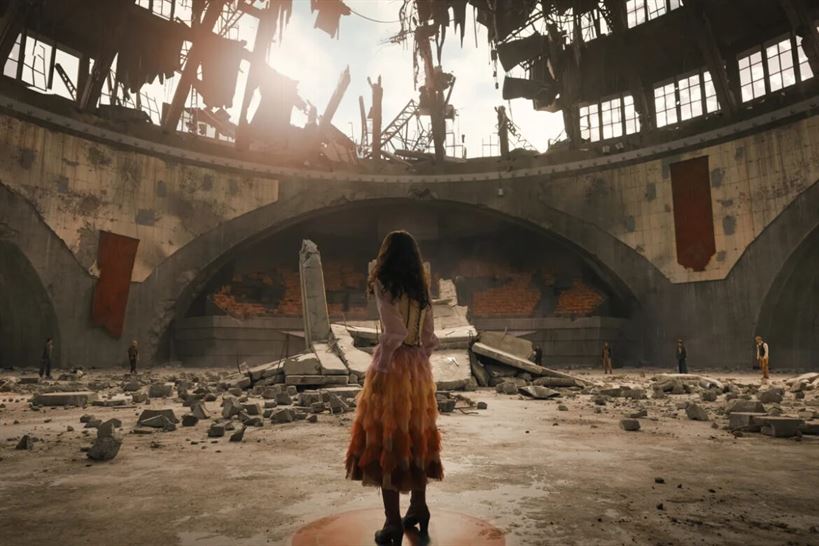As a “Hunger Games” fan since 2012, “The Hunger Games: The Ballad of Songbirds and Snakes” was incredibly captivating and has earned a spot as one of the best of the series. The film follows the life of Coriolanus Snow as a teenager before he became the President Snow we all hate. It takes place during the 10th annual Hunger Games, at a point in time when many people do not watch or care about the games as they do during the 74th games where we met Katniss Everdeen.
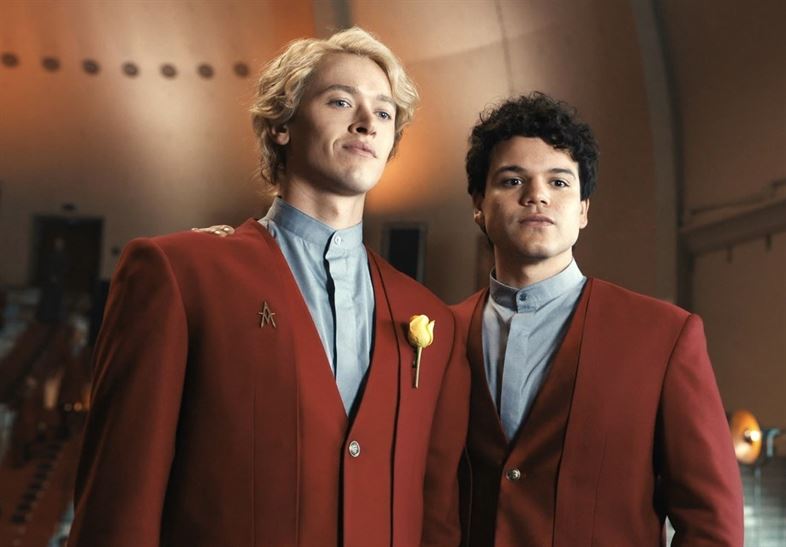
Coriolanus Snow (Tom Blyth) and Sejanus Plinth (Josh Andrés Rivera) appear as a one-sided friendship. Photo courtesy of Lionsgate.
In order to try to get more momentum for the games, the Capitol enlists their Academy students to act as mentors to the tributes. Coriolanus is assigned Lucy Gray Baird from District 12, an eccentric performer and singer. Coriolanus does everything in his power to ensure Lucy Gray’s survival, but more importantly, to earn the Plinth Prize that is promised to a student mentor. This prize, offered by the father of Coriolanus’ classmate and reluctant friend, Sejanus Plinth, would allow Snow to attend University and grow through the ranks of power.
The film is split into three different parts of Coriolanus’ life, just as the book is formatted. I loved this decision, and it certainly makes it easier and more understandable to the viewers who may not have read the book. While the book is amazing, it is also very long, which resulted in a lot of moments being cut from the film. Though these moments are not incredibly significant to the plot, there were a few changes made, specifically during the actual games that are different from the book.
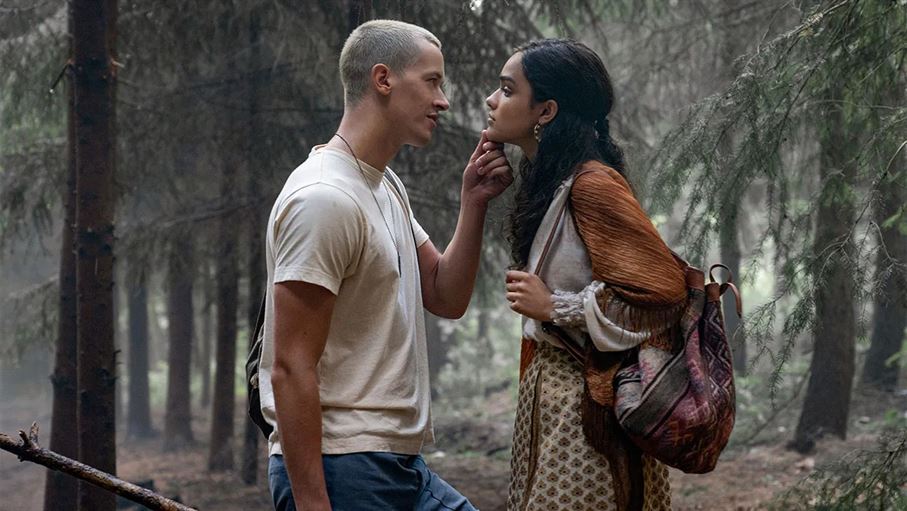
Coriolanus Snow (Tom Blyth) and Lucy Gray Baird's (Rachel Zegler) relationship capture Snow's struggle between good and evil. Photo courtesy of Lionsgate
The pacing of the games appeared rushed at certain points. In the book, the games take course over a few days but in the film, it only appears as short as two or three days. The film also changes the role of certain tributes so that we can get an idea of how the concept of the “careers” begins.
Nevertheless, the games included the most important scenes from the book and it was stunning to see the words on the page come to life. As much as I have criticized this part of the film, it also has one of my favorite scenes between the tribute Coral and Lucy Gray that was reminiscent of the scene between Katniss and Cato in the first “Hunger Games” film.
One concern I had about the film was that because of its PG-13 rating, it would not include the brutality and grittiness of the book. Although the film does not include much blood or gore, it still establishes the violence of not only the games but of regular district life.
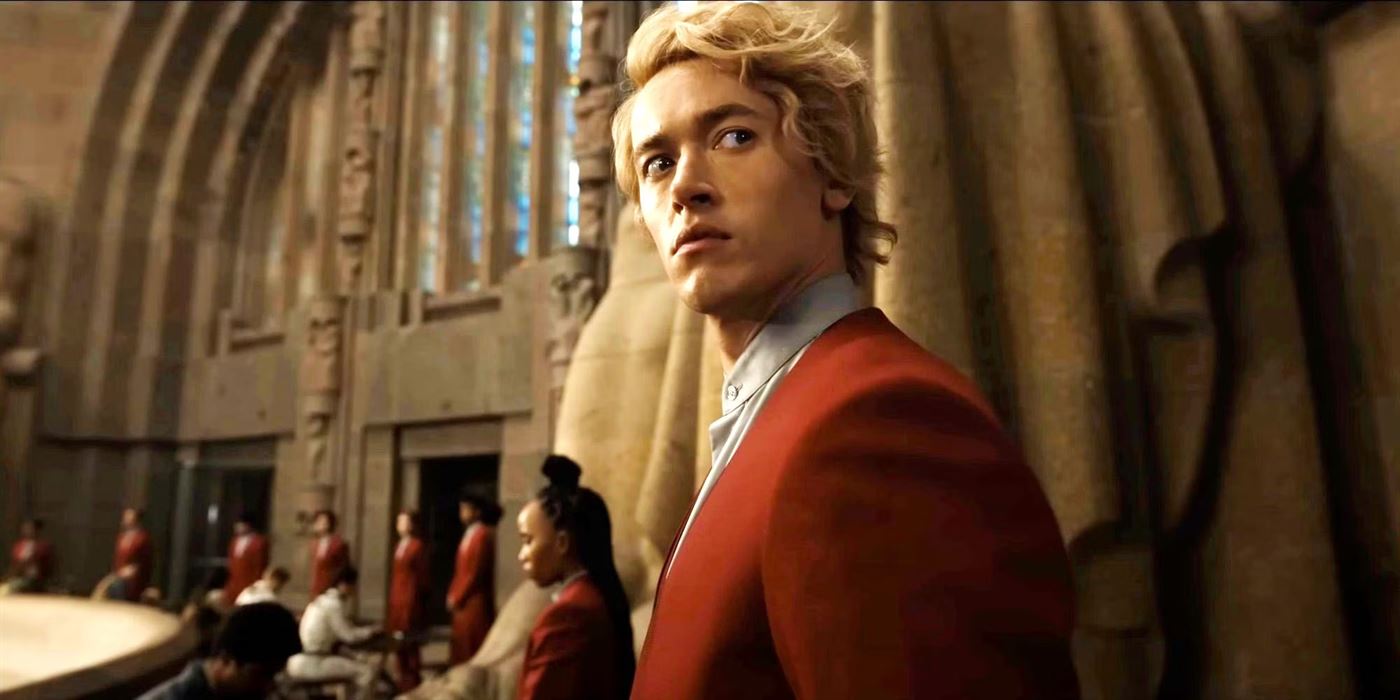
Coriolanus Snow (Tom Blyth) as a teenager shows the origins of President's Snow rise to power. Photo courtesy of Lionsgate.
I also wondered how the film was going to portray Coriolanus, as in the book much of his character development relies on his own inner monologue. This is often hard to translate to screen, so I believe that they made Snow appear more cold and mean to show a natural progression to the complete evil we see in the original series. The lack of an inner monologue also affected the relationship development between Lucy Gray and Coriolanus.
The relationship seems rushed and even odd in my opinion in the film as opposed to the book. Their romantic relationship was one of the most important things about the book, it showed Coriolanus’s inner struggle between good and bad, his need for power and his ability to love and feel. I do not believe that the film captured his struggle and their relationship as well as it could have.
All my criticisms being said, I still loved this film. I was impatiently waiting for this for months and it did not disappoint. Some of the best performances were Rachel Zegler as Lucy Gray, Josh Andrés Rivera as Sejanus and Viola Davis as Dr. Volumnia Gaul.
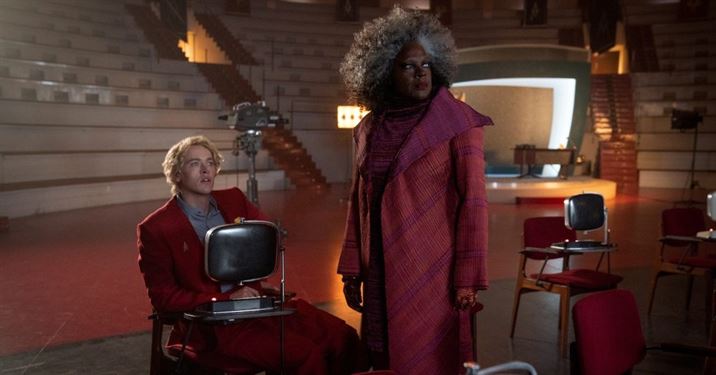
Coriolanus Snow (Tom Blyth) and Dr. Volumnia Gaul (Viola Davis) are a pair of evil geniuses in the making. Photo courtesy of Lionsgate.
I truly could not imagine anyone else being Lucy Gray quite like Zegler. She perfectly captured the bright, loving, and smart essence of Lucy Gray. Rivera as Sejanus Plinth was so heartbreaking and just as I imagined the character to be from the book. Davis as Dr. Volumnia Gaul was truly terrifying and easily one of the most evil characters from the series.
There are many callbacks and references to the original series if you pay close attention. One of my favorite instances of this is in the music, many themes and songs are carried over at particular moments. My favorite moment of this is the last scene of the film, the song that plays is the same song that ends “Catching Fire.”
The film shows how much the games have changed and grown since the tenth. The main focus of the games in this film is to explain how they became such a spectacle and beloved event all due to help from Coriolanus. The film and book explore the ideas of humanity, with the recurring question being, “What are the Hunger Games for?” This answer changes for Coriolanus many times throughout the film, landing on his final answer in the last act that establishes the core of his rule when he is president.
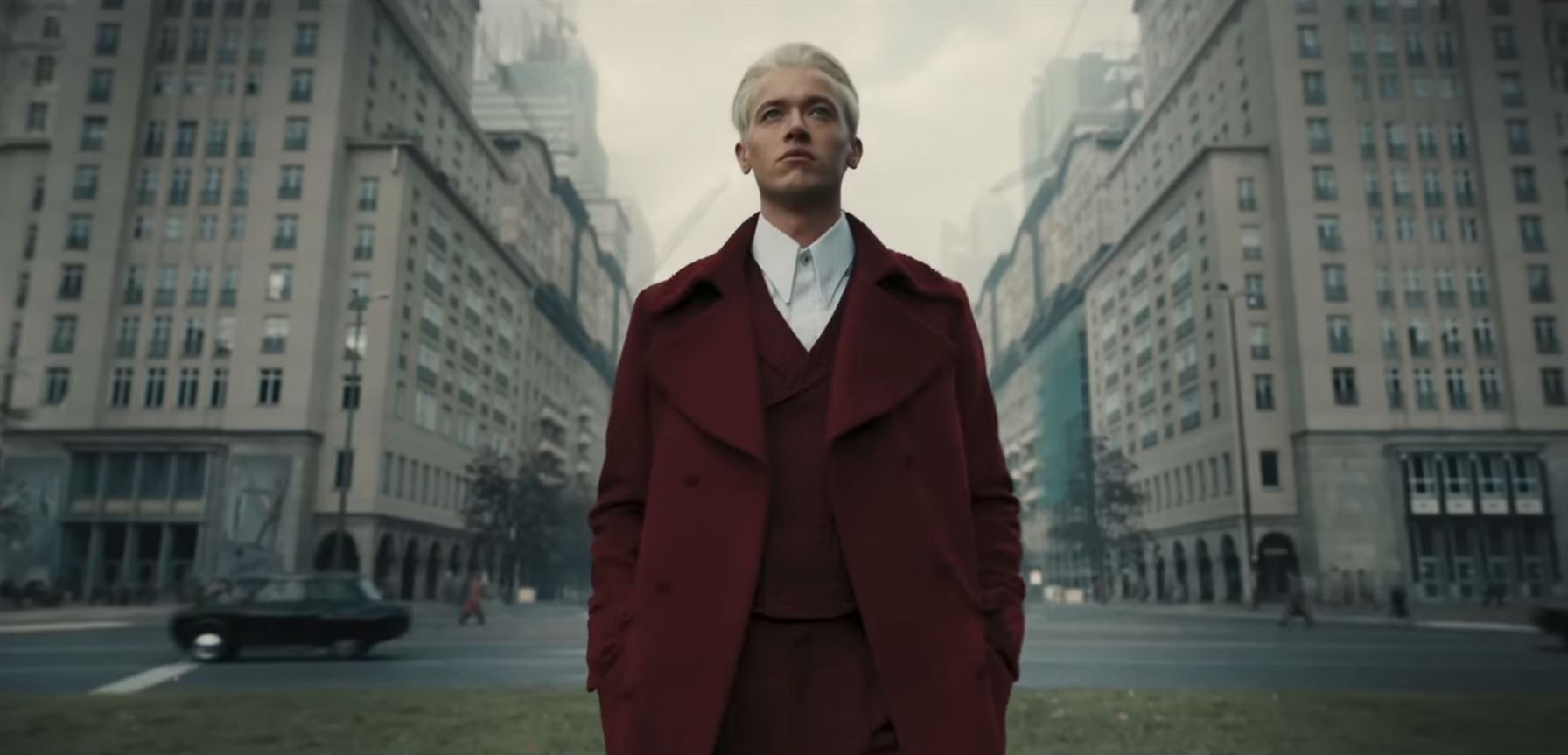
Coriolanus Snow (Tom Blyth) struggles between his desire for power and his feelings for Lucy Gray Baird. Photo courtesy of Lionsgate.
I would have loved to see more explanation and scenes with the Covey, Tigris Snow, Clemensia Dovecote and the relationship between Lucy Gray and Coriolanus. Overall, this film acts as an amazing companion to the book, but if you would like to see it fully fleshed out I would suggest reading the book.

